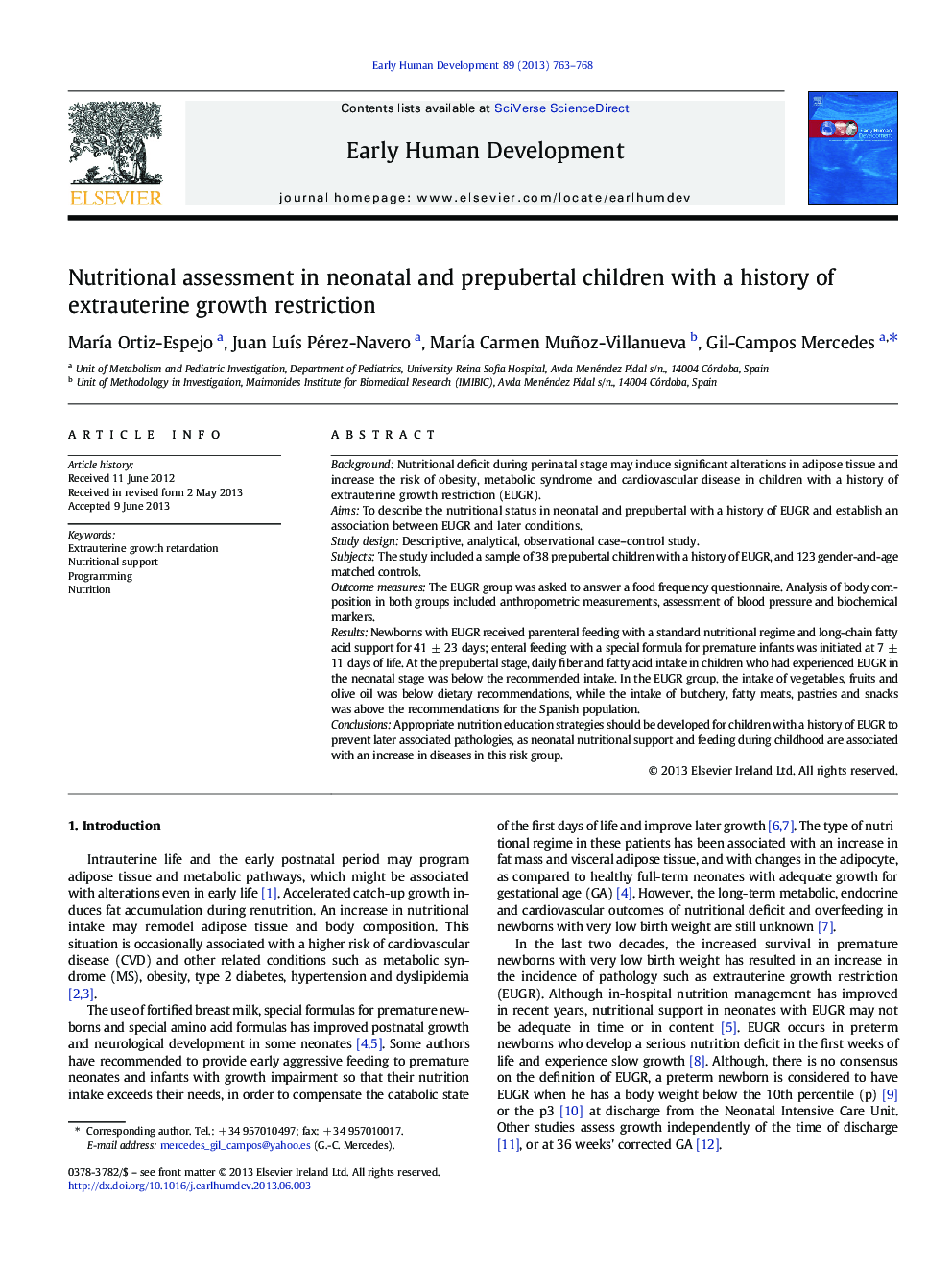| Article ID | Journal | Published Year | Pages | File Type |
|---|---|---|---|---|
| 6172330 | Early Human Development | 2013 | 6 Pages |
BackgroundNutritional deficit during perinatal stage may induce significant alterations in adipose tissue and increase the risk of obesity, metabolic syndrome and cardiovascular disease in children with a history of extrauterine growth restriction (EUGR).AimsTo describe the nutritional status in neonatal and prepubertal with a history of EUGR and establish an association between EUGR and later conditions.Study designDescriptive, analytical, observational case-control study.SubjectsThe study included a sample of 38 prepubertal children with a history of EUGR, and 123 gender-and-age matched controls.Outcome measuresThe EUGR group was asked to answer a food frequency questionnaire. Analysis of body composition in both groups included anthropometric measurements, assessment of blood pressure and biochemical markers.ResultsNewborns with EUGR received parenteral feeding with a standard nutritional regime and long-chain fatty acid support for 41 ± 23 days; enteral feeding with a special formula for premature infants was initiated at 7 ± 11 days of life. At the prepubertal stage, daily fiber and fatty acid intake in children who had experienced EUGR in the neonatal stage was below the recommended intake. In the EUGR group, the intake of vegetables, fruits and olive oil was below dietary recommendations, while the intake of butchery, fatty meats, pastries and snacks was above the recommendations for the Spanish population.ConclusionsAppropriate nutrition education strategies should be developed for children with a history of EUGR to prevent later associated pathologies, as neonatal nutritional support and feeding during childhood are associated with an increase in diseases in this risk group.
